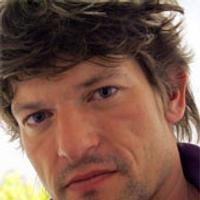Vyšla v knihe Poems, In Two Volumes v roku 1807. Vznikala dlho. Wordsworth dokončil prvé štyri strofy 27. marca 1802. Na záver položil otázku, s ktorou sa trápil vyše roka. Odpoveď našiel v ďalších siedmich strofách dopísaných na počiatku roka 1804.
Óda je v súčasnosti považovaná za jednu z najväčších romantických ód a patrí k najslávnejším dielam Williama Wordswortha. V dobe vydania ju však prijímali z rozpakmi, napríklad Lord Byron ju odvrhol bez hlbšej analýzy. Kritici ju volajú aj Veľká óda (Great Ode). Je písaná nepravidelnými veršami, tento útvar je pomenovaný ako Pindarická óda. Ide o spôsob veršovania, ktorý bol populárny v Anglicku na prelome 16. a 17. storočia. Najznámejšie pindarické ódy vyšli v knihe Pindarique Odes (1656) od Abrahama Cowleyho.
Vzhľadom na dĺžku a nepravidelnosť ukladania veršov v priestore uvediem najprv preklad a po ňom originálnu verziu ódy.
Óda: Náznaky nesmrteľnosti v spomienkach z raného detstva
Dieťa je otcom človeka;
A želám si, nech moje dni
Navzájom hladko splynú do piety
(Wordsworth, Moje srdce poskočí)
Bývali časy, keď sa lúka, riava, stromy,
v dohľade všetko bežné zo zeme
zazdalo mi
nebeským svetlom zdobené,
v sláve a tiež vo sviežostiach snových.
Nie je to také ako dávne vidiny; –
Kdekoľvek som,
či nocou, dňom,
to, čo som zrel, už veru nevidím.
Dúha sa zjaví a je preč,
Ruža je krásna vec,
s rozkošou mesiac sa sunie
po holom nebi obzeraj sa za ním,
povodia za hviezdnej noci v lune
krásne sú, páni;
Slnka svit je slávne zrodenie;
nech idem kamkoľvek,
že zemská sláva pošla, dobre viem.
Nuž, kým tu hravo spieva vtáčik sivý
a jahniatka tiež spútané sú nimi,
zneniami tamburíny,
podíde ku mne myšlienka, jej žiaľ:
Znova mám silu, čo som mal,
keď včasné vyjadrenie zbavilo ju viny:
Ozveny čujem z valiacich sa skál;
vodopád trúbi zo strminy;
zármutok viac ma smutným neučiní,
kým z polí spánku ku mne vietor vial,
A celá zem je jará;
More a či pôda
Veseliu sa oddá
a v srdci Mája
dve šelmy pokoj spája; –
Radostné dieťa aj tak
kričí tu, pastierik, nuž, počúvam ťa.
Vy požehnané tvory, čujem zvanie
ktoré si, badám, vymieňate;
aj Nebo raduje sa, kým sa hráte;
na vašej oslave čas srdce trávi,
aj čelo mojej hlavy,
cítim to všetko, cítim slasť, jak planie;
Ó, zlý deň! Ak som mrzutý,
kým Zem sa túži vykrútiť,
v májovom ráne vzplanutím
a deti ubíjajú ti.
Všade to zabolí,
široko-ďaleko, z tisícov údolí
čerstvé kvety; pokým hrejú slnka lúče
a Dieťa skočí Matke do náruče: –
Počujem, počujem, s radosťou počujem!
– len jeden z mnohých stromov, jedno lúčie
samotné pole, na ktoré zrakom spejem,
tí dvaja vravia o tom, čo už nie je:
fialka mi pod nohami
rovnaký príbeh dookola vraví:
Vizionársky lesk, kam zmizol len?
Kam podela sa sláva a tiež sen?
Náš zrod je iba spánkom, zabudnutím:
Duša, čo povstane v nás, nášho žitia Hviezda,
svoj pôvod inde múti,
zďaleka príde bez nás:
zo zabudnutia nechodí
a ani z vyslovenej nahoty,
sme zo zástupu mrakov slávy,
náš dom je Boh, ten pravý:
Nebo nám v detstve klame!
Tiene už väzenie sem lúdi,
sem, k mladíkovej cnosti,
Ale on vidí, odkiaľ svetlo prúdi,
vidí ho v blaženosti;
Kňaz Prírody, Mladosť, sa denne vzďaľuje,
cestuje, na východ smeruje,
zjavenie vzletné
cestou ho stretne.
Kým človek zvie, že odumiera,
stráca sa v každodenných érach.
Zem plní svoje lono pôžitkami;
Túžbami, ktoré sú jej prirodzené
a s materinskou mysľou, chcene,
bez hanebného ideálu,
domáca dojka robí, čo len môže,
aby jej adoptívne decko, človek, bože,
zabudlo na nádheru, ktorú si mu zjavil,
a na imperiálny palác, odkiaľ skanul.
Hľa, Dieťa v čerstvo narodenej slasti,
šesť rokov Miláčik je trpasličí!
Pozrite, prácou svojich rúk tu klíči,
prskajúc pod návalom bozkov matky,
kúpaný v žiary ocinových očí!
Hľa, pri nohách má kresbu, možno plánik,
úlomok zo sna o človečom žití,
sám si ho (s)tvoril umeleckým zdaním
Svadba alebo festival,
smútok alebo žalosť, žiaľ;
to v srdci teraz vlastní,
do neho svoju pieseň snová:
a potom jazyk triafa znova
obchodnú reč, aj lásku, kalamity,
dlho to nepotrvá,
kým odvrhne to všetko rýchlo
a s novou radosťou a pýchou
nám malý Herec inú nôtu chytí;
z času na čas „etapu vtipu“ plní
všetkými Ľuďmi, až je Vekom chromý,
to Život dáva, tak je vybavený;
akoby celé jeho povolanie
bolo len nekonečné napodobňovanie.
Ty, ktorého vonkajší vzhľad klame
nesmiernosť tvojej Duše samej;
Filozof skvelý, ktorý udržuješ i tak
Dedičstvo, Jednooký medzi slepcami,
čo, hluchý, tichý, vo večných len hĺbkach čítaš,
Si večnou mysľou navždy mátaný, —
Mocný Prorok! Veštec požehnaný!
Na ktorom tieto pravdy spočinúť by mali,
tie celý život sťažka túžime si podmaniť,
stratené v temnotách a v temnom hrobe;
po tebe Nesmrteľnosť hádže okom,
Rodí sa ako Deň, je Pánom nad Otrokom,
Prítomnosť, ktorú neodložíš bokom;
ty, malé dieťa, však slávne v sile okov
nebeskej slobody si na výšinách, človek,
prečo len s bolesťami provokuješ
roky, čo nevyhnutne prinášajú bolesť,
so svojou blaženosťou v spore, slepo, naveky?
Hneď Duša pozemský svoj náklad zváži
a zvyk ťa neskonale bude ťažiť,
ako mráz ťažký, takmer ako život hlboký!
Ó, radosť, v tvojej pahrebe
živúce čosi je,
čo bolo prchavé,
Príroda dobre vie!
Či dumy Večné požehnanie vo mne
vypestovali z dávnych rokov: to nie!
Najviac, čo požehnania hodné je;
Sloboda, rozkoš, to vyznanie z Detstva
prosté je, či pokojné a či vzrušené,
s nádejou novou v hrudi sa mi metá: —
nie pre ňu tu skladám
Pieseň vďake, chválam,
ale k tým tvrdohlavým tézam
o zmysle, o vonkajších témach,
čo z nás sa rútia do stratena;
Prázdnota obáv zo Stvorenia
hýbe sa v nepoznaných realitách,
inštinkty, pred nimi sťa vina prekvapená
Podstata naša smrteľná sa myká:
pre prvé náklonnosti
tie šeré spomienky jak mosty
nech akékoľvek sú, vždy budú len
prazdrojom svetla po celý náš deň,
sú ešte svetlom pána našich vidín;
držia nás, ľúbia, taktiež majú silu,
a naše hlučné roky sú len okamihy
večného Ticha: právd, čo prebúdzajú chvíľu
a nikdy nezahynú;
Tie ani apatia, ani bláznivá snaha minúť,
ani Muž, ani Chlapec,
ani nič neradostné, baže,
úplne zrušiť, zničiť nedokáže!
Preto sa počas jasného dňa hýbu,
hoc’ v hĺbke zemi spočinieme,
skrz naše Duše nesmrteľné more zrieme,
vedie nás sem,
v momente k nemu podísť smiem,
A vidím Deti na brehu sa hrať,
A čujem mocné vody večne hrmotať.
Spievajte, vtáky, pieseň, juchú!
žente mladé Jahňatá,
nech ich vrava opantá!
K zástupu pridáme sa v duchu,
ty tu pískaj, ty tu hraj,
svojim srdcom prečítaj
šťastie, precíť dnešný Máj!
Hoci jas zvykol kedysi byť jasný,
už nevidím ho, zmizol navždy,
hoc’ nič už tieto časy nevráti,
tie časy lesku v tráve, slávy v kvetoch, a ty
za sebou radšej Silu hľadaj,
nesmúť, to je moja rada;
v sympatiách prvotných
to, čo bolo, musí byť;
v kľudnej mysli, ktorá snáď
z utrpenia vyviera;
vo viere, hľadí spoza smrti,
čas, ktorý budí myseľ filozofa.
Ó, Fontány a Háje, Hory, Klásky,
odlúčiť nedovoľte naše lásky!
No moje srdce sŕdc tú tvoju veľkosť
ctí, jednej radosti len vzdám sa celkom,
pod tvojou bežnou nadvládou žiť zase.
Milujem Riavy, v ktorých hnev sa snúbi,
viacej, keď po ich vzore zľahka žasnem;
novozrodený Deň v nevinnom jase
ešte je ľúbi;
zhluknú sa Mraky vôkol slnka zrána,
pokojnú farbu z oka strážcu, ktorý
na smrteľníkov hľadí, v sebe nesú;
a súťaž neostala nevyhraná.
Len vďaka srdcu, len s ním prežívame,
len vďaka jeho šťastiu, strachu, nehe,
no mne je najhroznejším kvetom, pane,
myšlienkou, čo prihlboko pre plač zreje.
Ode: Intimations of Immortality from Recollections of Early Childhood
The child is father of the man;
And I could wish my days to be
Bound each to each by natural piety.
(Wordsworth, "My Heart Leaps Up")
There was a time when meadow, grove, and stream,
The earth, and every common sight,
To me did seem
Apparelled in celestial light,
The glory and the freshness of a dream.
It is not now as it hath been of yore;—
Turn wheresoe'er I may,
By night or day.
The things which I have seen I now can see no more.
The Rainbow comes and goes,
And lovely is the Rose,
The Moon doth with delight
Look round her when the heavens are bare,
Waters on a starry night
Are beautiful and fair;
The sunshine is a glorious birth;
But yet I know, where'er I go,
That there hath past away a glory from the earth.
Now, while the birds thus sing a joyous song,
And while the young lambs bound
As to the tabor's sound,
To me alone there came a thought of grief:
A timely utterance gave that thought relief,
And I again am strong:
The cataracts blow their trumpets from the steep;
No more shall grief of mine the season wrong;
I hear the Echoes through the mountains throng,
The Winds come to me from the fields of sleep,
And all the earth is gay;
Land and sea
Give themselves up to jollity,
And with the heart of May
Doth every Beast keep holiday;—
Thou Child of Joy,
Shout round me, let me hear thy shouts, thou happy Shepherd-boy.
Ye blessèd creatures, I have heard the call
Ye to each other make; I see
The heavens laugh with you in your jubilee;
My heart is at your festival,
My head hath its coronal,
The fulness of your bliss, I feel—I feel it all.
Oh evil day! if I were sullen
While Earth herself is adorning,
This sweet May-morning,
And the Children are culling
On every side,
In a thousand valleys far and wide,
Fresh flowers; while the sun shines warm,
And the Babe leaps up on his Mother's arm:—
I hear, I hear, with joy I hear!
—But there's a Tree, of many, one,
A single field which I have looked upon,
Both of them speak of something that is gone;
The Pansy at my feet
Doth the same tale repeat:
Whither is fled the visionary gleam?
Where is it now, the glory and the dream?
Our birth is but a sleep and a forgetting:
The Soul that rises with us, our life's Star,
Hath had elsewhere its setting,
And cometh from afar:
Not in entire forgetfulness,
And not in utter nakedness,
But trailing clouds of glory do we come
From God, who is our home:
Heaven lies about us in our infancy!
Shades of the prison-house begin to close
Upon the growing Boy,
But he beholds the light, and whence it flows,
He sees it in his joy;
The Youth, who daily farther from the east
Must travel, still is Nature's Priest,
And by the vision splendid
Is on his way attended;
At length the Man perceives it die away,
And fade into the light of common day.
Earth fills her lap with pleasures of her own;
Yearnings she hath in her own natural kind,
And, even with something of a Mother's mind,
And no unworthy aim,
The homely Nurse doth all she can
To make her Foster-child, her Inmate Man,
Forget the glories he hath known,
And that imperial palace whence he came.
Behold the Child among his new-born blisses,
A six years' Darling of a pigmy size!
See, where 'mid work of his own hand he lies,
Fretted by sallies of his mother's kisses,
With light upon him from his father's eyes!
See, at his feet, some little plan or chart,
Some fragment from his dream of human life,
Shaped by himself with newly-learn{e}d art
A wedding or a festival,
A mourning or a funeral;
And this hath now his heart,
And unto this he frames his song:
Then will he fit his tongue
To dialogues of business, love, or strife;
But it will not be long
Ere this be thrown aside,
And with new joy and pride
The little Actor cons another part;
Filling from time to time his "humorous stage"
With all the Persons, down to palsied Age,
That Life brings with her in her equipage;
As if his whole vocation
Were endless imitation.
Thou, whose exterior semblance doth belie
Thy Soul's immensity;
Thou best Philosopher, who yet dost keep
Thy heritage, thou Eye among the blind,
That, deaf and silent, read'st the eternal deep,
Haunted for ever by the eternal mind,—
Mighty Prophet! Seer blest!
On whom those truths do rest,
Which we are toiling all our lives to find,
In darkness lost, the darkness of the grave;
Thou, over whom thy Immortality
Broods like the Day, a Master o'er a Slave,
A Presence which is not to be put by;
Thou little Child, yet glorious in the might
Of heaven-born freedom on thy being's height,
Why with such earnest pains dost thou provoke
The years to bring the inevitable yoke,
Thus blindly with thy blessedness at strife?
Full soon thy Soul shall have her earthly freight,
And custom lie upon thee with a weight,
Heavy as frost, and deep almost as life!
O joy! that in our embers
Is something that doth live,
That Nature yet remembers
What was so fugitive!
The thought of our past years in me doth breed
Perpetual benediction: not indeed
For that which is most worthy to be blest;
Delight and liberty, the simple creed
Of Childhood, whether busy or at rest,
With new-fledged hope still fluttering in his breast:—
Not for these I raise
The song of thanks and praise
But for those obstinate questionings
Of sense and outward things,
Fallings from us, vanishings;
Blank misgivings of a Creature
Moving about in worlds not realised,
High instincts before which our mortal Nature
Did tremble like a guilty thing surprised:
But for those first affections,
Those shadowy recollections,
Which, be they what they may
Are yet the fountain-light of all our day,
Are yet a master-light of all our seeing;
Uphold us, cherish, and have power to make
Our noisy years seem moments in the being
Of the eternal Silence: truths that wake,
To perish never;
Which neither listlessness, nor mad endeavour,
Nor Man nor Boy,
Nor all that is at enmity with joy,
Can utterly abolish or destroy!
Hence in a season of calm weather
Though inland far we be,
Our Souls have sight of that immortal sea
Which brought us hither,
Can in a moment travel thither,
And see the Children sport upon the shore,
And hear the mighty waters rolling evermore.
Then sing, ye Birds, sing, sing a joyous song!
And let the young Lambs bound
As to the tabor's sound!
We in thought will join your throng,
Ye that pipe and ye that play,
Ye that through your hearts to-day
Feel the gladness of the May!
What though the radiance which was once so bright
Be now for ever taken from my sight,
Though nothing can bring back the hour
Of splendour in the grass, of glory in the flower;
We will grieve not, rather find
Strength in what remains behind;
In the primal sympathy
Which having been must ever be;
In the soothing thoughts that spring
Out of human suffering;
In the faith that looks through death,
In years that bring the philosophic mind.
And O, ye Fountains, Meadows, Hills, and Groves,
Forebode not any severing of our loves!
Yet in my heart of hearts I feel your might;
I only have relinquished one delight
To live beneath your more habitual sway.
I love the Brooks which down their channels fret,
Even more than when I tripped lightly as they;
The innocent brightness of a new-born Day
Is lovely yet;
The Clouds that gather round the setting sun
Do take a sober colouring from an eye
That hath kept watch o'er man's mortality;
Another race hath been, and other palms are won.
Thanks to the human heart by which we live,
Thanks to its tenderness, its joys, and fears,
To me the meanest flower that blows can give
Thoughts that do often lie too deep for tears.






